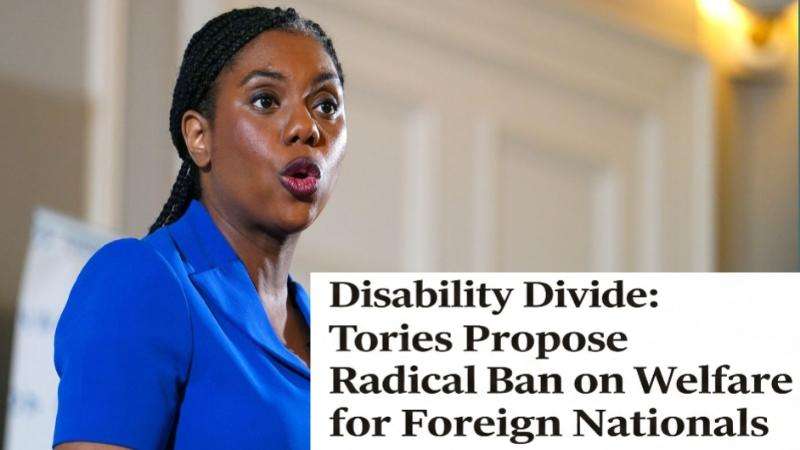A consultation document released by the Labour Party's Equalities Minister, Bridget Phillipson, has ignited a fierce political debate over a proposed equality law. The Conservative party has branded the move a "class war" that will unfairly penalize the middle class and privately educated, while Labour defends it as a necessary measure to address socio-economic inequality, Daily Dazzling Dawn understands.
The core of the controversy lies in the "socio-economic duty," a provision within the Equality Act 2010 that was never enacted by previous Conservative governments. Labour's 2024 manifesto pledged to revive this duty, extending equality laws beyond race, age, gender, disability, and sexuality to include social class. If implemented, it would require public authorities to give "due regard" to disparities in income and socio-economic status when making strategic decisions.
Tory Accusations of Discrimination
The Conservatives argue that this duty will lead to discriminatory practices against middle-class families and those who have chosen private education. They cite concerns that public bodies might divert funds and opportunities away from wealthier areas and individuals, potentially leading to reduced services like bin collections and library closures in affluent communities. Shadow Education Secretary Neil O'Brien has been a vocal critic, claiming the law would "divide middle England and punish families who work hard and aren't on benefits." He suggests that children could face discrimination in school or university applications based on their postcode or parents' occupation.
A Tory source highlighted a case where a child was allegedly denied NHS treatment because they attended a private school, arguing that this type of situation would become more common under the proposed law. They also pointed to the existing 20% VAT hike on private school fees as further evidence of Labour's anti-middle-class stance.
Labour's Defense: A 'Duty for Fairness'
Labour, however, vehemently rejects the "class war" accusations. A Labour source dismissed the Tory claims as "desperate stuff from a Tory party sliding into irrelevance." They pointed out that Conservative-led councils across the country have already voluntarily applied similar socio-economic duties, undermining the Tory's criticism.
Labour argues that the socio-economic duty is designed to "level up" neglected parts of the country and improve public services for those facing socio-economic disadvantage. They emphasize that the duty aims to address inequalities of outcome resulting from factors like occupation, education, place of residence, and social class. The party contends that it's about ensuring fairness and that public bodies actively consider the impact of their decisions on those experiencing disadvantage.
Examples in Practice: Scotland and Wales
Similar socio-economic duties are already in place in Scotland (since 2018) and Wales (since 2021). These examples offer insights into how the duty might function in practice.
Scotland: The "Fairer Scotland Duty" has led to the integration of socio-economic considerations into public planning and decision-making. This includes addressing issues like area deprivation, fuel poverty, and community empowerment.
Wales: The Welsh government uses the duty to conduct "Integrated Impact Assessments" for strategic decisions, ensuring that socio-economic disadvantage is a key consideration. Examples include a scheme to ensure social care workers received full pay when unable to work due to COVID-19.
Potential Impacts and Ongoing Debate
The potential impacts of Labour's proposed equality law are wide-ranging and remain a subject of intense debate.
Potential benefits cited by supporters include:
Reduced inequalities in access to public services.
More inclusive recruitment practices.
Improved outcomes for low-income residents.
A more integrated approach to tackling various forms of disadvantage.
Potential drawbacks and concerns raised by opponents include:
Discrimination against middle-class individuals and families.
Reduced services in wealthier areas.
Increased bureaucracy and potential for legal challenges.
The risk of unintended consequences and further division within society.
As the consultation process continues, the debate surrounding Labour's equality law is likely to intensify. The outcome will have significant implications for how public bodies operate and how resources are allocated across the UK.








.svg)


_1.jpg)